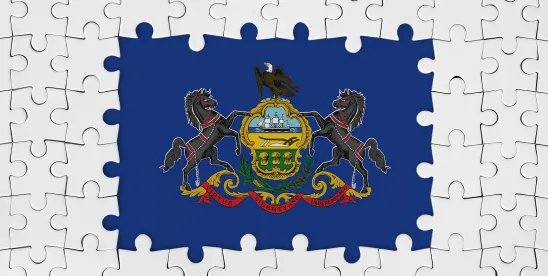On July 23, 2024, a judge in the U.S. District Court for the Eastern District of Pennsylvania denied a motion for preliminary injunction seeking to stay the effective date of the Federal Trade Commission’s (FTC) final noncompete rule. The court in ATS Tree Services, LLC v. Federal Trade Commission rejected the plaintiff’s argument that the FTC exceeded its statutory authority in adopting the noncompete rule, concluding the FTC is empowered with broad authority to regulate “unfair methods of competition” under Section 6 of the Federal Trade Commission Act of 1914. The Pennsylvania federal district court’s decision sets up a potential split amongst federal courts and leaves employers in a state of uncertainty surrounding the FTC rule as its effective date approaches.
Quick Hits
- On April 23, 2024, the FTC voted to adopt a final rule banning nearly all noncompete agreements in employment contracts.
- The FTC currently faces at least three federal lawsuits challenging the rule.
- On July 3, 2024, a Texas federal court held that the FTC exceeded its statutory authority in adopting the rule but declined to enter a nationwide injunction staying the rule’s effective date.
- On July 23, 2024, a Pennsylvania federal court reached a different conclusion, holding that the rule falls within the FTC’s rulemaking authority under the FTC Act.
The FTC rule is set to go into effect on September 4, 2024, unless a court issues an order delaying its implementation.
On April 25, 2024—just two days after the FTC voted to adopt its noncompete rule—Pennsylvania-based ATS Tree Services, LLC, filed a legal challenge in the Eastern District of Pennsylvania. ATS Tree Services sought a preliminary injunction to stay the effective date of the rule, arguing (among other things) that the FTC’s rule exceeds the agency’s congressional authorization under the FTC Act.
On July 23, 2024, the Pennsylvania court denied the plaintiff’s request for a preliminary injunction. The court held that the FTC acted “within its authority under the [FTC] Act in designating all non-compete clauses as ‘unfair methods of competition.’” The court also rejected the plaintiff’s arguments that it would “suffer irreparable harm” to its contractual rights and investments in specialized training for its employees if the rule goes into effect.
The ATS Tree Services decision comes on the heels of another decision addressing the rule from the U.S. District Court for the Northern District of Texas in Ryan, LLC v. Federal Trade Commission. On July 3, 2024, the Texas federal court granted the plaintiffs’ request for preliminary injunctive relief and stayed the effective date of the rule, but limited the scope of the injunction to the parties in the case.
The Texas court’s reasoning in Ryan stands in stark conflict with the Pennsylvania court’s decision in ATS Tree Services. The Texas court held that the FTC rule likely exceeds the FTC’s congressional authority and appears to be an arbitrary and capricious exercise of the FTC’s rulemaking authority. The Texas federal court indicated that it will issue a final ruling on the merits in Ryan or before August 30, 2024, before the rule’s September 4, 2024, effective date.
Meanwhile, a third challenge to the rule was recently filed in the U.S. District Court for the Middle District of Florida by a Florida-based real estate residential housing company, Properties of the Villages, Inc. (POV). Much like the plaintiffs in the Texas and Pennsylvania cases, POV seeks a preliminary injunction to stay the effective date of the rule, arguing that the rule exceeds the agency’s statutory authority and impermissibly displaces the substantive statutory and regulatory frameworks of states around the country (including Florida’s statutory scheme). POV also contends the rule’s impact is impermissibly retroactive because it would “reshape the contractual relationships between business and individuals on an unprecedented scale.”
The FTC’s response to the motion for preliminary injunction in Properties of the Villages, Inc. v. Federal Trade Commission is due on July 25, 2024. POV has requested the Florida court issue a ruling sufficiently in advance of the rule’s effective date to “avoid incurring unrecoverable costs to prepare for and effectuate compliance with the unlawful Rule as well as avoid substantial and irreparable harm to its business.”
The rule is certain to be the subject of additional litigation efforts and appeals, and it is possible the Supreme Court of the United States will eventually weigh in. But as it stands, the FTC rule is scheduled to go into effect on September 4, 2024, unless and until a court stays its effective date on a nationwide basis. In the coming weeks, employers should carefully monitor litigation developments and assess whether to begin preparing updated restrictive covenant agreements and notices to employees in the event the rule goes into effect.





 />i
/>i
